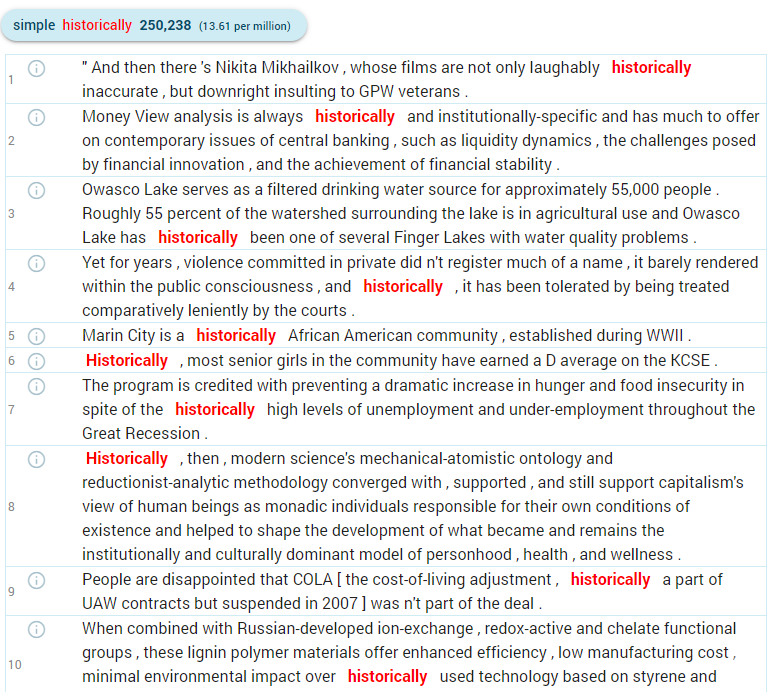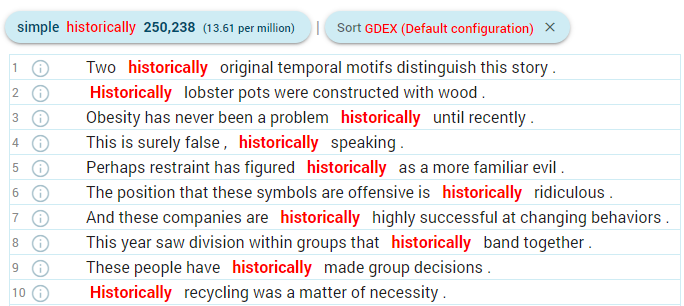GDEX stands for “Good Dictionary EXamples”. It is a system for evaluation of sentences with respect to their suitability to serve as dictionary examples or good examples for teaching purposes.
Sentences are evaluated with respect to their length, use of complicated vocabulary, presence of controversial topics (politics, religion…), sufficient context, references pointing outside of the sentence (e.g. pronouns), brand names and other criteria.
The GDEX tool looks at the user-defined number of sentences and sorts them according how well they match the GDEX criteria.
To use GDEX:
- Select a corpus and make a concordance.
The concordance can be generated in any way: using any of the concordance searches or jumping to the concordance from other tools via the context menu more_horiz, e.g. the menu next to a collocation in the word sketch. - Click the button in the toolbar above the concordance.
- Specify how many sentences should be evaluated.
A higher numbrer will evalute more sentences which increases the chance of finding more “nice” sentences but the evaluation takes longer. Reducing the number speeds the process up but reduces the chances of finding enough nice sentences.
Alternative GDEX configurations can be selected, if available. The configuration selected here is also used in TickBox Lexicography (TBL).
Working with GDEX result
The sentences will be sorted by the best GDEX score from best to worst. The sentences often require some postediting before using them as dictionary examples or as sentences for teaching. Despite this, the use of GDEX make the process of developing example sentences much more effective.
Custom GDEX
Users can develop their own GDEX configuration to make the filtering more restrictive or permissive. For example, sentences to use with young learners may require stricter criteria.
There is a manual for expert users who want to develop their own GDEX configurations. See manual for GDEX . You may like to contact us first before starting a major GDEX project.
References
Adam Kilgarriff, Miloš Husák, Katy McAdam, Michael Rundell and Pavel Rychlý (2008). GDEX: Automatically finding good dictionary examples in a corpus. In Proceedings of the 13th EURALEX International Congress. Spain, July 2008, pp. 425–432.
Without GDEX
Normal concordance for the word historically. GDEX not applied.
With GDEX
The same concordance but with the first 3,000 lines evaluated by GDEX and sorted by the GDEX score.






